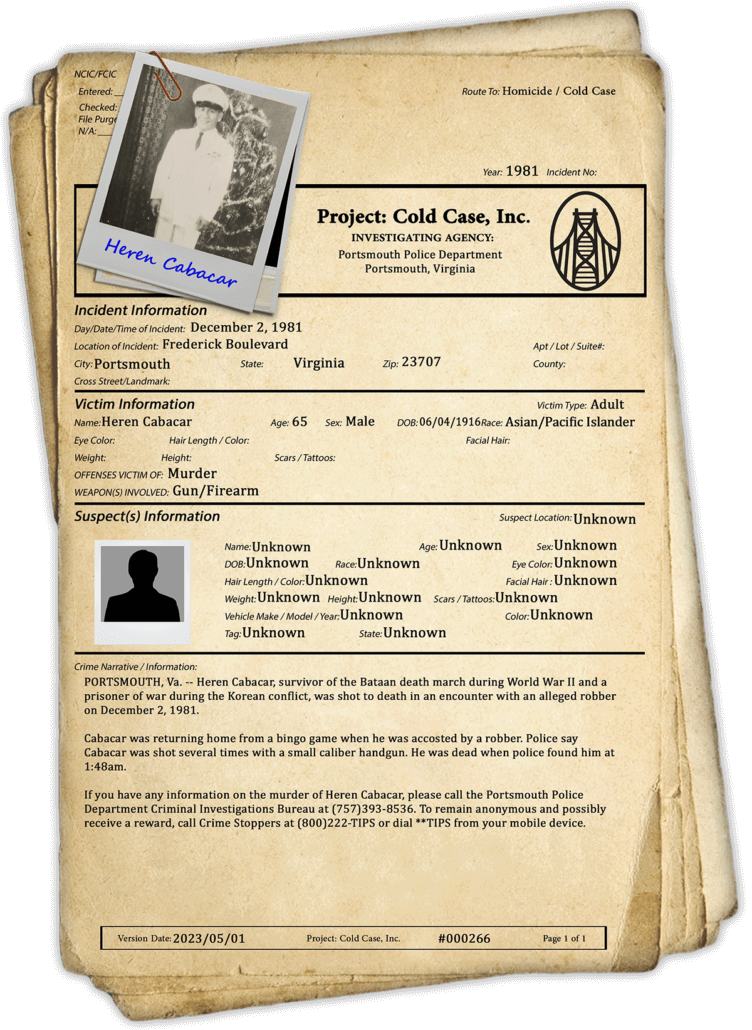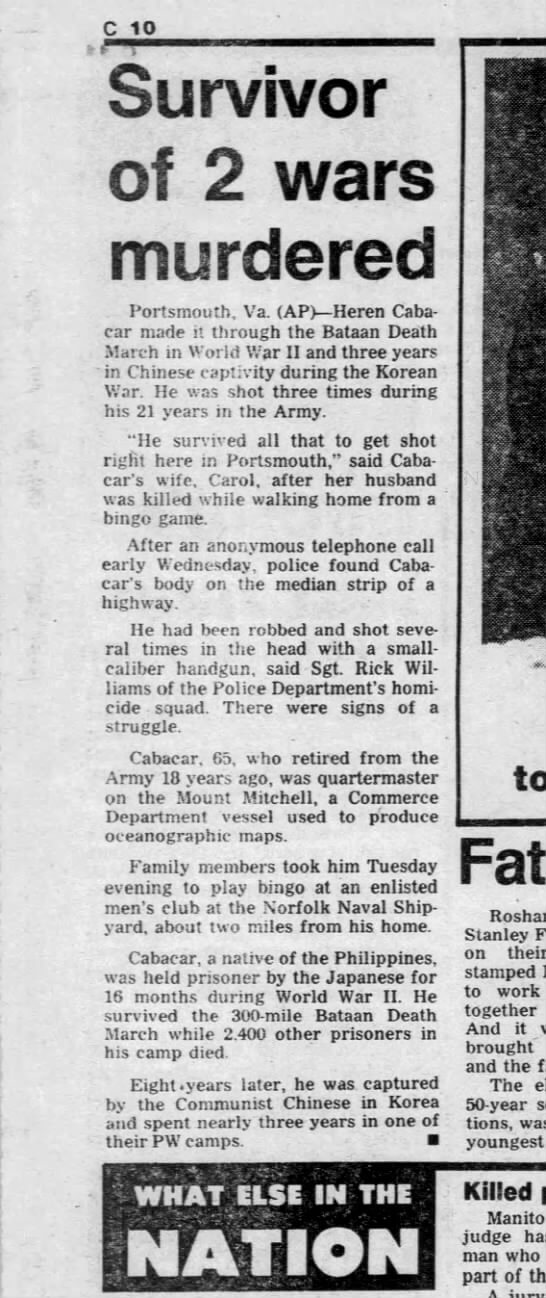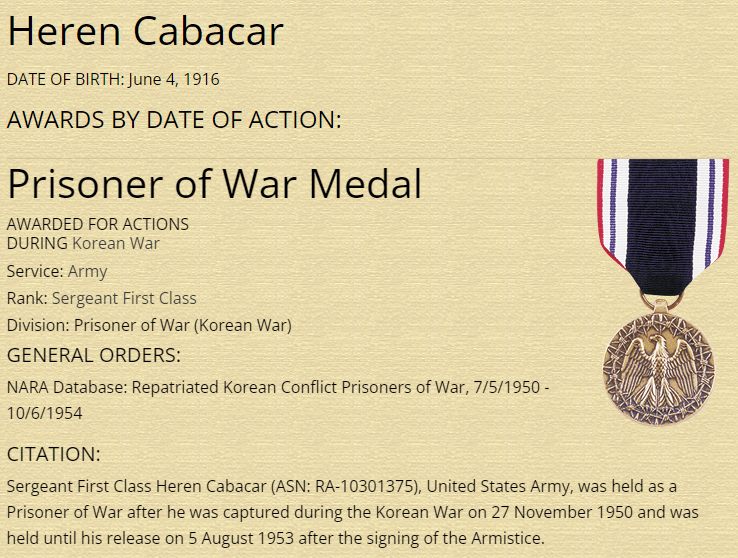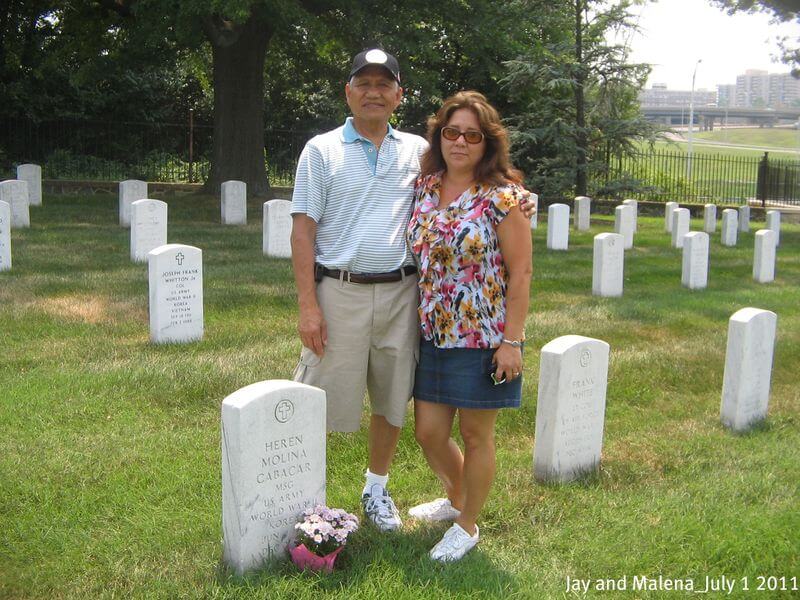May 1, 2023 | By Caitlyn Becker
Caitlyn is an Emmy-Winning Journalist, DailyMail.com Senior Reporter, Frequent Contributor to Court TV, Dr. Phil and NewsNation, and a Project: Cold Case Volunteer
By all accounts, 65-year-old Army veteran Heren Cabacar was the consummate survivor. The beloved father managed to defy the odds time and again throughout two decades in the military, but in 1981 Cabacar’s life would end tragically on a dark suburban street.
On a rain-soaked Virginia night more than 40 years ago, Cabacar was shot dead while walking home from, of all things, playing bingo. His case went cold just 49 days later and remains unsolved.
Despite the decades that have passed since receiving life-altering news that her father had been murdered, Cabacar’s daughter, Nina Valdez, has never been able to move on.
“You never move forward. You never close it,” Nina said in a recent sit-down with Project: Cold Case. “I still feel like I’m 15 years old when I think about my father. And everyone remembers that moment where they were when this occurred.” She added: “I know a lot of families say this, but he was really one of the good ones.”
A Filipino immigrant to the U.S., Cabacar served his country in World War II and the Korean War and suffered greatly during his time in the military. In the second World War, he was among the prisoners of war forced to walk some 65 miles in grueling conditions by the Japanese Imperial Army during what became known as the Bataan Death March. Prisoners were routinely beaten, killed and starved of food and water.
Cabacar would find himself in enemy hands again while fighting in the Korean War, spending three years in a prisoner camp. By some miracle, he not only survived these nightmares, he went on to thrive as a husband and father.
“The stories of my father are embedded in all of our hearts,” she said. “What he went through and how he survived. He truly believed in freedom.”
Valdez recalled her father’s zest for life, as well as his ability to compartmentalize the horrors he experienced as a POW, managing to find pleasure in the simple things like staying fit, tending to his garden and beating anyone who dared go up against him on the tennis court.
“He just loved being around people, always challenging people to a game of tennis – and they would lose,’ Nina Valdez recollected with a laugh. “He was really a loving person. I often wonder with the things that, you know, played around in his head, how he maintained such a love for people.”
“There are just some people who feel like they have to save somebody or help somebody. That was my father,’ Nina said. She added: “He truly believed he could make a difference.”
Valdez, who is now in her late 50s with children of her own, still speaks with respect and reverence about the man who taught her how to drive a car and play tennis when she was a little girl.
“I always, throughout my whole life thought: what would my dad think? If I did that, what would my dad think? If I did this, what would he think? Of me graduating, having kids?” she mused.
Sadly, Valdez and her family would never get a chance to know. More than four decades ago, Cabacar had been walking home late at night after winning at bingo when he was gunned down in Portsmouth, Virginia.
Police said he was ambushed by two, possibly three people, shot multiple times and left for dead in the middle of the road. At the time, investigators believed this to have been a robbery gone wrong because Cabacar’s pockets had been turned out. Beyond that they had no leads.
“My dad wasn’t scared of Portsmouth,” Nina reflected. “You can’t wrap your head around it.”
Somehow over the decades, Cabacar’s case file has gone missing making it next to impossible for his murder to be solved – a grim reality for Nina and her family.
“We call every year,” Nina explained, “They said there’s no record of this guy even being killed.”
She continued: “There’s no records they can locate even to put a case together. It’s been tough – it really has been tough on the whole family – 49 days after my father lay dead in the median, you know, this case went inactive.”
Short of someone walking into the police station and confessing, Cabacar’s family has little hope that police will solve his cold case. This is why Nina, who was just 15 at the time of the murder, tries to keep his story out there: in the hopes someone may remember something and finally come forward.
‘It was the day that never ended for us, truly,’ she said. “I survive by teaching my kids about my father’s story. My kids never met my father, but they feel like they could tell you his whole life story.”
If you have any information on the murder of Heren Cabacar, please call the Portsmouth Police Department Criminal Investigations Bureau at (757)393-8536. To remain anonymous and possibly receive a reward, call Crime Stoppers at (800)222-TIPS or dial **TIPS from your mobile device.
Please consider using the buttons below to share this case in hopes that someone, somewhere will come forward and give this victim and family the answers they need and the justice they deserve.
If you have a loved one that is the victim of an unsolved homicide, please submit their case here for consideration in a future Cold Case Spotlight post.





















